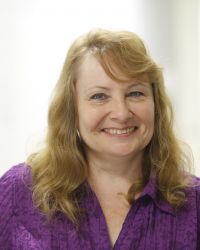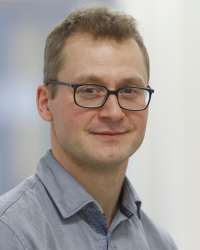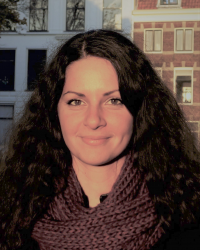Frankfurt CRISPR/Cas Screening Center (FCSC)
The recently introduced CRISPR/Cas technology initiated an unprecedented biological revolution. As such, there is an increasing demand on gene editing technologies, including single and multiple gene knockouts, transcriptional activation/repression, targeted single nucleotide modification or the precise replacement of genetic loci for the purpose of tagging or modification.
To meet the increasing demand within the Institute and the local community, the IBC2 has built up the Frankfurt CRISPR/Cas Screening Center (FCSC). On the basis of collaboration, the platform supports both internal and external researchers with expertise, reagents and strategic advice on gene editing. The FCSC guides researches along their individual needs, ranging from single to multiple gene editing events, specific gene replacements, to the generation of custom-made gRNA libraries.
To generate high-quality gene editing reagents with unprecedented coverage, the FCSC mainly relies on the proprietary 3Cs technology, which was invented at the IBC2. The FCSC also contributes to further development of the technology for new applications.
The FCSC is closely connected with several research networks, including the CRC 1177 on “Molecular and Functional Characterization of Selective Autophagy”, the Excellence Cluster “Cardiopulmonary Institute (CPI)”, Frankfurt Cancer Institute (FCI) and Innovative Medicine Initiative (IMI).
Any requests for collaborations can be addressed to Koraljka Husnjak
Dr. Koraljka Husnjak
Koraljka was born in Croatia, where she studied molecular biology at the Faculty of Science, University of Zagreb. She received her Master of Science and PhD training at the Division of Molecular Medicine at the Rudjer Boskovic Institute headed by Kresimir Pavelic. Koraljka initially worked on oncogenic viruses and molecular mechanisms of cancer development. After joining the group of Ivan Dikic as a postdoctoral fellow, she shifted her focus on identification and characterization of novel ubiquitin- and ubiquitin-like binding domains by various approaches, including the identification of Rpn13 as a novel proteasomal ubiquitin receptor. She started her independent career in 2010 as a group leader at IBC2. Her group is interested in various aspects of atypical ubiquitination. In particular, her laboratory aims to decipher the functional roles of various ubiquitin-binding proteins in protein degradation, signal transduction and immune response. Her most recent work relates to the role of linear ubiquitination and novel linear ubiquitin-binding domains in TNFR1 signaling and cell death. Since January 2019 Koraljka is a team leader of the FCSC.
Rosemarie Braun
Michaela Braun did her technical assistant (MTA) training in Heidelberg and works at the IBC2 since 2012 to support our scientific staff in the implementation and execution of their research projects. From January 2018 on, Michy has taken the challenge to join the team building up the FCSC.
Dr. Yves Matthess
Yves received his diploma in Biology and Computer Science from the Goethe University of Frankfurt. He developed an inducible shRNA system and an shRNA prediction algorithm for RNA interference (RNAi) to uncover the functions of oncogenes. Applying the inducible RNAi system, a transgenic animal model was implemented to demonstrate cancer addiction of Polo-like kinase 1. Working on the cell cycle at the Institute of Gynecology and Obstetrics in Frankfurt he used RNAi screening technology and high-throughput data analysis for improving drug target opportunities for ovarian cancer patients. In 2018 he joined the IBC2 as postdoctoral scientist building up the FCSC platform. Recently he designed an inducible and multiplex-based CRISPR/Cas9 system for conditional gene knockouts.
Past Members:
Unbiased and tailored CRISPR/Cas gRNA libraries by synthesizing covalently-closed-circular (3Cs) DNA. Wegner M, Husnjak K, Kaulich M. Bio-protocol (2020) 10(1): e3472. DOI: 10.21769/BioProtoc.3472
Circular synthesized CRISPR/Cas gRNAs for functional interrogations in the coding and noncoding genome. Wegner M, Diehl V, Bittl V, de Bruyn R, Wiechmann S, Matthess Y, Hebel M, Hayes MG, Schaubeck S, Benner C, Heinz S, Bremm A, Dikic I, Ernst A, Kaulich M. Elife ( 2019) 8. pii: e42549. doi: 10.7554/eLife.42549.
Wegner M, Diehl V, Bittl V, de Bruyn R, Wiechmann S, Matthess Y, Hebel M, Hayes MG, Schaubeck S, Benner C, Heinz S, Bremm A, Dikic I, Ernst A, Kaulich M. Circular synthesized CRISPR/Cas gRNAs for functional interrogations in the coding and noncoding genome. Elife. 2019 Mar 6;8. pii: e42549. doi: 10.7554/eLife.42549.
Wegner MS, Schömel N, Gruber L, Örtel SB, Kjellberg MA, Mattjus P, Kurz J, Trautmann S, Peng B, Wegner M, Kaulich M, Ahrends R, Geisslinger G, Grösch S. UDP-glucose ceramide glucosyltransferase activates AKT, promoted proliferation, and doxorubicin resistance in breast cancer cells. Cell Mol Life Sci. doi: 10.1007/s00018-018-2799-7.
Le Guerroué F, Eck F, Jung J, Starzetz T, Mittelbronn M, Kaulich M, Behrends C. Autophagosomal Content Profiling Reveals an LC3C-Dependent Piecemeal Mitophagy Pathway. Mol. Cell 2017. 68 (4): 786-796.e6.
de Bruyn R, Diehl V, Wegner M, Kaulich M. Präklinische Anwendungen von CRISPR/Cas - CRISPR/Cas applications in preclinical research. Pharmakon. 2017 4:258-264.
Wesely J, Steiner M, Schnütgen F, Kaulich M, Rieger MA, Zörnig M. Delayed Mesoderm and Erythroid Differentiation of Murine Embryonic Stem Cells in the Absence of the Transcriptional Regulator FUBP1. Stem Cells Int. 2017; 2017:5762301.
van Wijk SJL, Fricke F, Herhaus L, Gupta J, Hötte K, Pampaloni F, Grumati P, Kaulich M, Sou YS, Komatsu M, Greten FR, Fulda S, Heilemann M, Dikic I. Linear ubiquitination of cytosolic Salmonella Typhimurium activates NF-κB and restricts bacterial proliferation. Nat Microbiol. 2017 May 8;2:17066.
Key publications on CRISPR technology development of Manuel Kaulich during his postdoctoral tenure at UC San Diego in the Dowdy laboratory:
Meitinger F, Anzola JV, Kaulich M, Richardson A, Stender JD, Benner C, Glass CK, Dowdy SF, Desai A, Shiau AK, Oegema K. 53BP1 and USP28 mediate p53 activation and G1 arrest after centrosome loss or extended mitotic duration. J Cell Biol. 2016 Jul 18;214(2):155-66.
Kaulich M, Lee YJ, Lönn P, Springer AD, Meade BR, Dowdy SF. Efficient CRISPR-rAAV engineering of endogenous genes to study protein function by allele-specific RNAi. Nucleic Acids Res. 2015 Apr 20;43(7):e45.
Kaulich M, Dowdy SF. Combining CRISPR/Cas9 and rAAV Templates for Efficient Gene Editing. Nucleic Acid Ther. 2015 Dec;25(6):287-96.



